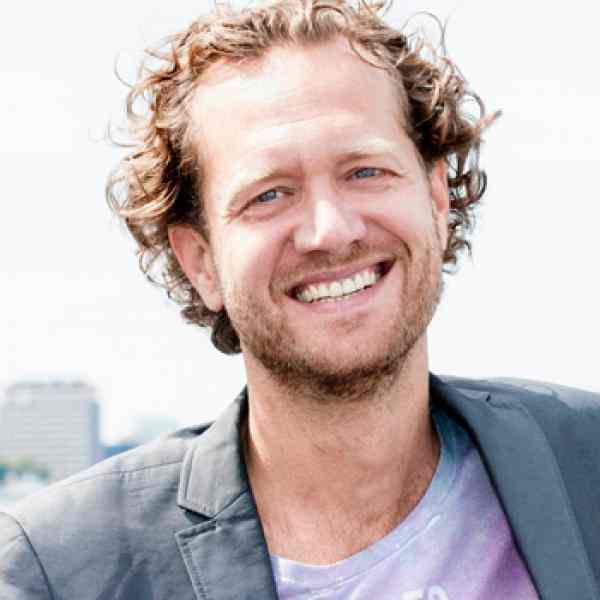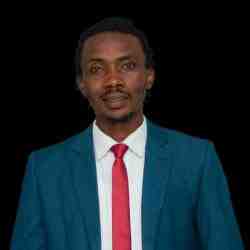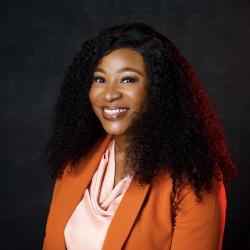Introduction
By designing and producing the first modular designed, and thus longer lasting, smartphone, building a conflict free and fair supply and production chain, Bas van Abel with his company Fairphone is creating a movement of ethical consumption while shifting the smartphone industry -one of the most complex supply chains- towards ethical production and complete transparency, fueling change instead of conflict.
The New Idea
Bas founded Fairphone to build a movement for fairer electronics, using three strategies; Firstly, by creating a smartphone which shows the whole electronics industry it is possible to produce fair and sustainable products even in one of the most challenging and complex industries (electronic consumer goods). Secondly, by designing for re-use and longer life-cycles of the various elements of the phone, he introduced the first modular phone on the market. And thirdly, by ‘raising’ a new generation of consumers that is aware of the way electronic products are designed and produced, literally creating a market for electronic products that put ethical values first. By doing this Fairphone creates a social innovation platform for all stakeholders in the electronics supply chain.
The Problem
What most people do not realize is that all of the parts of their electronic devices come from the earth. A brief inquiry into particularly complex items such as electronic consumer goods and their countless small parts, gives you a glimpse into the quantity of natural resources used in the production of these products. Every smartphone contains about 40 different minerals, including tantalum, tungsten, copper, iron, nickel, aluminum, tin, silver, chromium, gold and palladium. All these minerals and metals originally enter the supply chain from the mining sector – an industry not known for its sustainability best practices. Pollution, extremely dangerous working conditions, and child labor, are just a few of a number of mining-related practices that desperately require improvement. Companies that source conflict minerals indirectly fund rebel groups, contributing to political and economic instability while also neglecting workers’ rights, safety and their ability to earn fair wages. When it comes to manufacturing of smartphones the vast majority of the phones and its parts are produced under unsafe and unfair conditions regarding workers’ rights, pay, and safety.
Another problem is that phones are generally thrown away for minor reasons – for example, a small broken part is difficult to repair and it is easier to buy a new phone. This creates a lot of waste (some of it dangerous), puts a strain on scarce resources and shows that consumers are not aware of the consequences of their consumption behavior. All currently available smartphones are designed in ways that result in issues with battery life, inability to install software updates (slowing down the phone), and little or no reparability.
In the eyes of the consumer a smartphone is quite removed from their bodies and thus, is not in the consumer spotlight in terms of its impact. . Consider this in contrast to food or cosmetics, which have an obvious effect on oneself and are thus more prone to investigation of its origins and its materials, and are consequentially more obviously targeted for fair consumption behavior. A 2008 study by Lohmuller and Dillemuth shows that consumers find telecommunication the least important in terms of environmental and social impact when being confronted with a basket containing different products. This illustrates the lack of consumer awareness when it comes to products in the tele-communications sector.
The problem with electronic goods is that they are infinitely more complex and thus slip under the radar of even conscious consumers. This lack of awareness is one of the root causes of the buy-and-throw-away mentality most users of smartphones and consumer goods display nowadays with an average product life cycle of smartphones being just about 18 months (in the US the largest market for smartphones). To make matters worse, the recycling rate for smartphones is the lowest of all major electronics categories, because consumers often store their phone or throw it in the conventional trash instead of bringing it to recycling stations as they would do with larger electronics items. These consumers are simply not aware of the negative impact of their behavior.
With regards to human resources and transparency in the production chain there are equally pressing issues, evident in the Electronic Industry Trends 2014 Report that examines the efforts of 39 global electronics companies to address the issues of paying workers a living wage, preventing child and forced labor, and upholding worker rights.
Core findings included the following:
¥ 97% of companies fail to pay factory workers enough to live on. Only one company (Nokia) was able to show that some workers received a living wage.
¥ Less than half of companies assessed had adopted the Electronics Industry Citizen Coalition (EICC) Code of Conduct, which prohibits child and forced labor and addresses human trafficking.
¥ Just 10% of companies guarantee a fair price or financially support their suppliers to provide decent working conditions.
¥ Half of companies knew which suppliers were responsible for their manufacturing, but less than 1 in 5 knew where the raw materials came from.
¥ Only 1 in 3 could provide public supplier lists, which encourage transparency and accountability.
¥ Two thirds of companies are involved in projects to trace mineral suppliers, in order to prevent sourcing conflict minerals.
These findings indicate that up to now there has been no fair and sustainable practice of electronic manufacturing. This means that even consumers, who would like to purchase a fair and sustainably produced smartphone, cannot find a single alternative on the market.
The Strategy
Bas van Abel founded Fairphone in 2013 to build a movement that would disrupt one of the most challenging, complex and massive industries around: the smartphone industry. Bas is motivated by the philosophical perspective of our capitalist system and solving the challenges it brings with it. By showing that fair and sustainable design, production and consumption is possible in one of the dirtiest industries, Bas shows the profit-driven system is failing us and that we can build a better alternative. Ultimately he strives for a human centered system. Bas envisions a new economy – one where social and environmental values become a natural part of doing big business.
Bas is revolutionizing the consumer electronics and smartphone industry by focusing on three key pillars.
First, he positively influences key players in the supply chain. For example, Fairphone has ensured improved safety and labor measures with their manufacturing contractor in Chongqing, China. These include improved fire safety measures, written policies on child labor and juvenile protection, proper and adequate labelling of chemicals, improved lighting in the production rooms, free lunch in the cafeteria and minimum wage plus a premium which goes into a Worker Welfare Fund. Through these efforts, more than $300k in premiums was paid out to workers through this worker welfare fund for the entire production facility (even though Fairphone workers only make up a small part). All these changes have been realized by a democratically elected workers council, a first in China where freedom of association is severely restricted. Fairphone therefore creates a change in manufacturing practices aiming to create spillover effects in the supply chain to other smartphone manufacturers (that buy from this production facility); simply by showing to other big electronic manufacturers that more sustainable and fair manufacturing practices are possible.
With regards to the mining of minerals and metals, Fairphone chooses and even sets up certified mines wherever possible and pushes systematically for better mining practices. Together with the Fairtrade organization and a Peruvian gold mine, they have recently successfully set up the world’s first Fairtrade gold mine, a mine of large capacity with clients such as Apple and Samsung. Through this specific project, producers beyond Fairphone are now getting access to Fairtrade gold. They have impacted this part of the supply chain in such a way that other large players (like Samsung and Apple) are now are able to source Fairtrade gold too, increasing impact beyond Fairphone’s own production.
Other achievements illustrating how Bas is building a fairer electronics manufacturing supply chain, include the setting up of a conflict-free tungsten supply chain through several conflict-free mining programs in the Democratic Republic of Congo, which were catalysts in increasing the amount of certified mines in Congo from one to 140 in less than two years. Fairphone directly engages with 2nd tier supplies on extensive social programs and, for example, helped recycle more than 100,000 phones from Ghana. Bas is very involved in getting other large producers to buy from conflict free mines by leading by example.
Fairphone is the first to construct a smartphone that has modular design. This allows for easy repair once a part of the phone is broken and for upgrades when certain parts of the phone become outdated, increasing the life cycle of the phone tremendously (4-5 years). When opening the phone even a consumer with no technical knowledge can easily exchange the screen, buttons, battery etc. to repair the phone instead of throwing it away and obtaining a new one. This concept saves valuable resources, gives back value to the item at hand and shows the consumer how products can, and should be constructed to be more sustainable. See below for an example on how Bas’ shares design files to the larger community striving for greater longevity of the smartphone.
Fairphone positions itself as a movement which gives consumers an alternative to buying unethically produced phones, and by being fully transparent about where they have been successful and where there are shortfalls in achieving their mission. Fairphone uses the phone as a communication tool to show users what the problems are and what solutions might look like; ultimately resulting in a new market of ethical consumers, who are aware of and demand phones that are designed to be sustainable, are produced fairly. Ultimately, this will drive other phone manufacturers to follow this ‘new’ demand. To show just how effective this, Fairphone has been mentioned more than 3000 times in different media sources all over the world in 2015 alone, including The New York Times, Al Jazeera, The Wallstreet Journal, Wired and CNBC, and has more than 100,000 Facebook likes showing a growing interest, awareness and the creation of this movement.
On the other side of this movement building is the advocacy aspect towards policy change. Bas is advising the Dutch government on how to bring more transparency into the supply chain. One of the most important laws hindering design and production of fair electronics is the patent law. In an average smartphone, there are 300,000 patents, of which 100 crucial to produce a smartphone. This, of course needs to change. To advocate for this, Fairphone takes on an active role in a European fair licensing association. Closely related to this, Fairphone shows how this can be done differently, by sharing whatever possible with the larger community. To mention a few examples: firstly, Bas is the only phone producer delivering an open source build environment, so that whomever wants to build solutions to integrate hardware of the phone with software functionalities is able to do so, and contribute to other users with the same issue. This creates a longer hardware life of the smartphone, because consumers can solve issues themselves and updates can be written by the community instead of being halted by the phone producer who, by doing this, creates a negative incentive for keeping the phone. This not only shows Bas and Fairphone’s believe in longevity of the hardware as key to sustainability, it also illustrates his ability to empower and engage with consumers, building a truly engaged community, growing a movement of aware consumers. In this way Bas’ shows that the old capitalist thinking of ‘keeping things for one selves’ (licensing) –to make more money- is not the way forward, and that changing for the better means sharing with an engaged community.
Another example illustrating the same ambition is Bas’ approach to smartphone accessories; Fairphone is unique in providing all CAD-files of the smartphone for free to whoever wants it to develop an accessory for the phone. Fairphone engages with a community of people/designers each of them having a 3D-printer. Consumers who would like to buy a phone cover can buy and pay for it online, and receive a coupon which can be used to 3D print the cover at the most nearby 3D-printer owners place. With this program Fairphone stimulates a new ‘maker’ industry, in which they engaged more than 20,000 designers.
Beginning in mid-2013 the first edition of Fairphone was created - the production of the Fairphone 1 was entirely crowdfunded with contributions reaching €7 million. Within 18 months Fairphone sold 60,000 phones only through their own website, grew from 2 to 25 employees, reached around €16million revenue and was transformed from a non-profit social enterprise into a for profit social enterprise to reach maximum scale and impact. The for profit entity enables Fairphone to participate in industry events and take a different position in lobbying groups as other producers are seeing them as a part of the industry instead of an external party. It professionalized in this manner in order to develop the Fairphone 2 from the ground up so as to increase Fairphone’s impact on both supply and demand. €6 million was invested into the development of Fairphone 2 and the company grew from 25-42 employees. By the end of December 2015 more than 20,000 phones have been pre-ordered and pre-paid to partly finance the first production of the first batch of phones. Sales of 150,000 Fairphones are projected for 2016. To have his entire team ready for the next growth phase Bas organized Fairphone using an adapted version of the holacracy approach, empowering his employees to self-manage, thereby keeping Fairphone flexible.
Bas is not interested in making phones, he is interested in telling stories as to improve the world, but he knows that he has to increase scale to reach more people to revolutionize this industry. Whenever Bas meets an impact investor he starts interrogating the investor about the impact he makes, illustrating again and again how Bas is mission driven and passionate about changing the relationship between people and products. With Fairphone, he is opening up systems on a step- by-step journey to making the world’s first fairly designed and produced smartphone before moving on to other products in the consumer electronics field.
The Person
Bas’ fascination with creating (and deconstructing) things started very early in life, as he loved taking everything he could find apart to see how it worked and how it was build. This even went so far that he was always carrying a screwdriver around in order to not miss out on opportunities to take things apart. This practical approach carried through high school where he was also exposed to philosophy, which he liked so much that as a teenager he was thinking about studying theology. Bas’ parents took him and his brother on many travels which shaped his view on the world in that he started to become really interested in other cultures and particular the individual stories people had to tell. This also led him to go to India after high school which further sparked his interest in anthropological viewpoints.
He then went to study at the academy of the arts, where he specialized in interaction design. For his graduation project Bas created a table for children with motor impairment. This design was offered €200k in funding by a toy producer, but he didn’t feel ready yet to take on this project and let two of his study colleagues take it on.
As part of the Dutch Think Tank Waag Society, Bas he played a key role, in the initial maker movement and brought the idea of Fablabs to Europe. The people behind the fablab at MIT had everything worked out in theory, but they were not able to put it into practice. Bas was able to create momentum for this open hardware movement by implementing a new approach to documenting and using the labs in a way that everybody benefits from it. Bas co-edited the book Open Design Now, which seeks to transform design into an open and shared discipline that creates a diversity of innovative products through a collaborative and world-spanning process. At Waag Society Bas was the one making things happen that were outside the rule book. He became the creative director of Waag Society where his idea for Fairphone emerged from a campaign that focused on the problem with conflict minerals in the Democratic Republic of Congo. It was from here that the idea matured and led Bas to set up his second open hardware movement, Fairphone.
Bas is somebody who combines hard skills such as mathematics, scientific thinking, and programming with very playful and creative approach to life while still having far reaching pragmatic capabilities in his enterprising.




